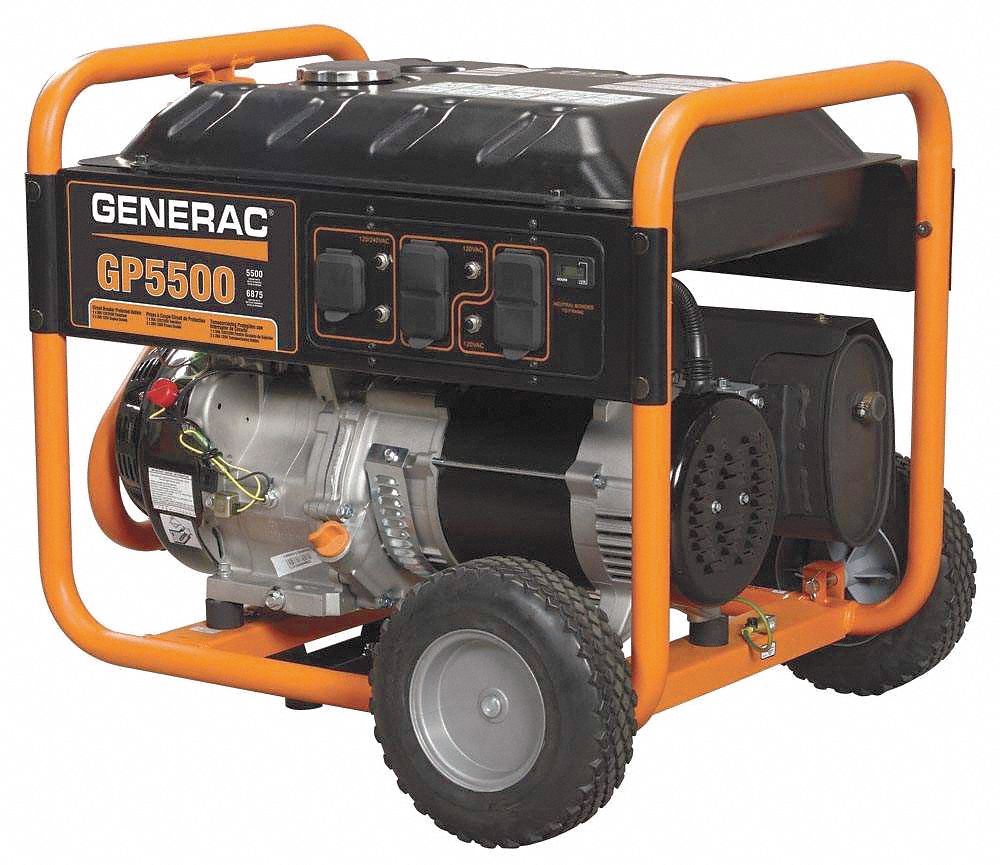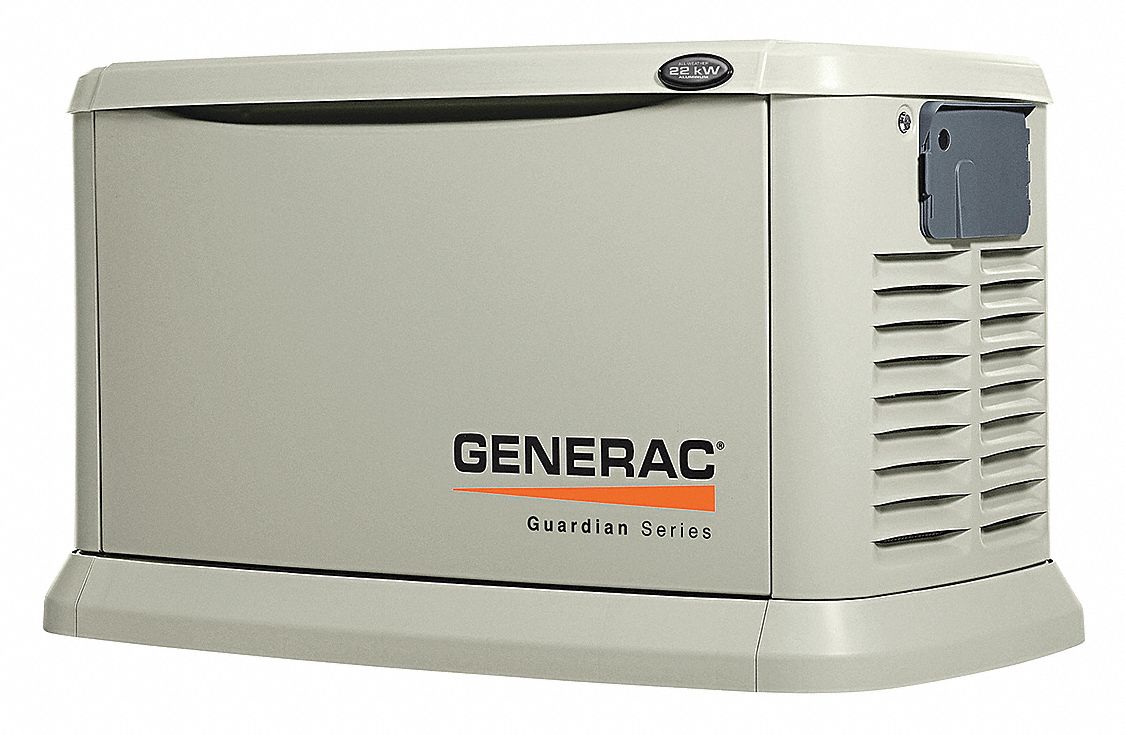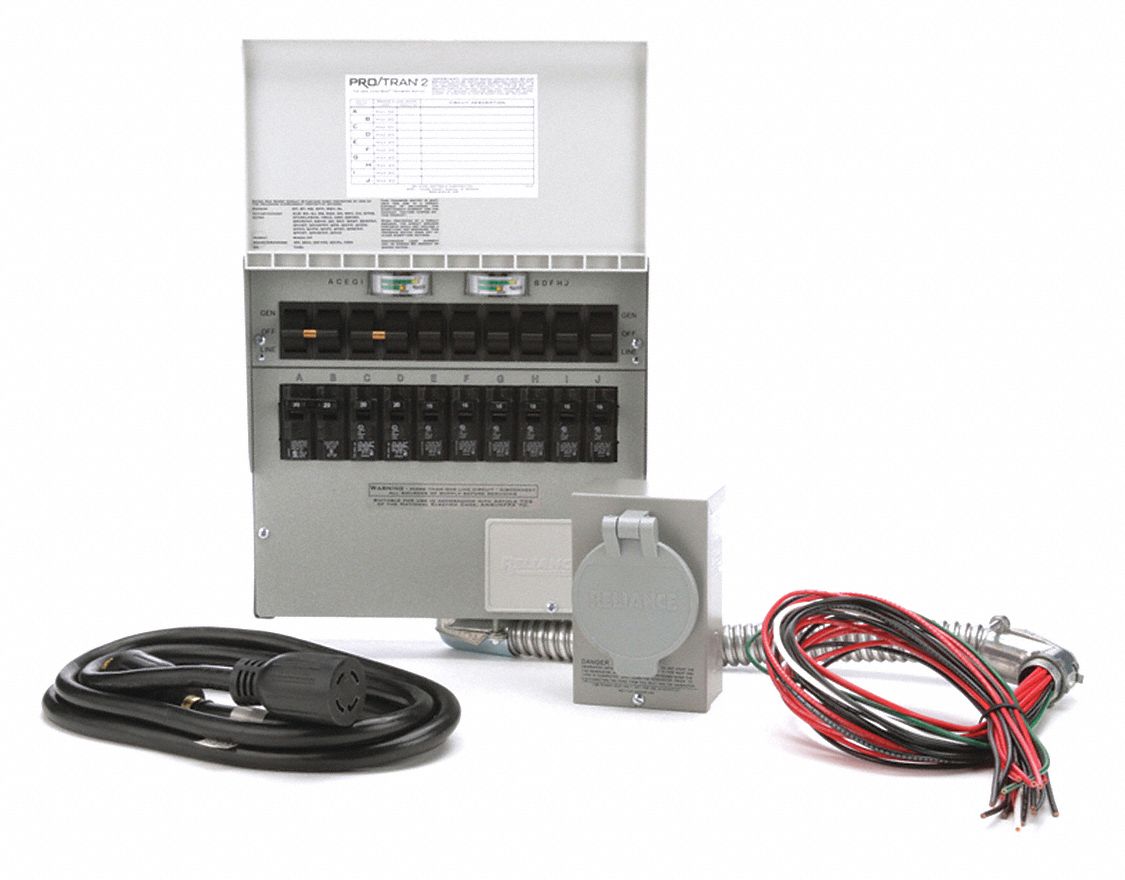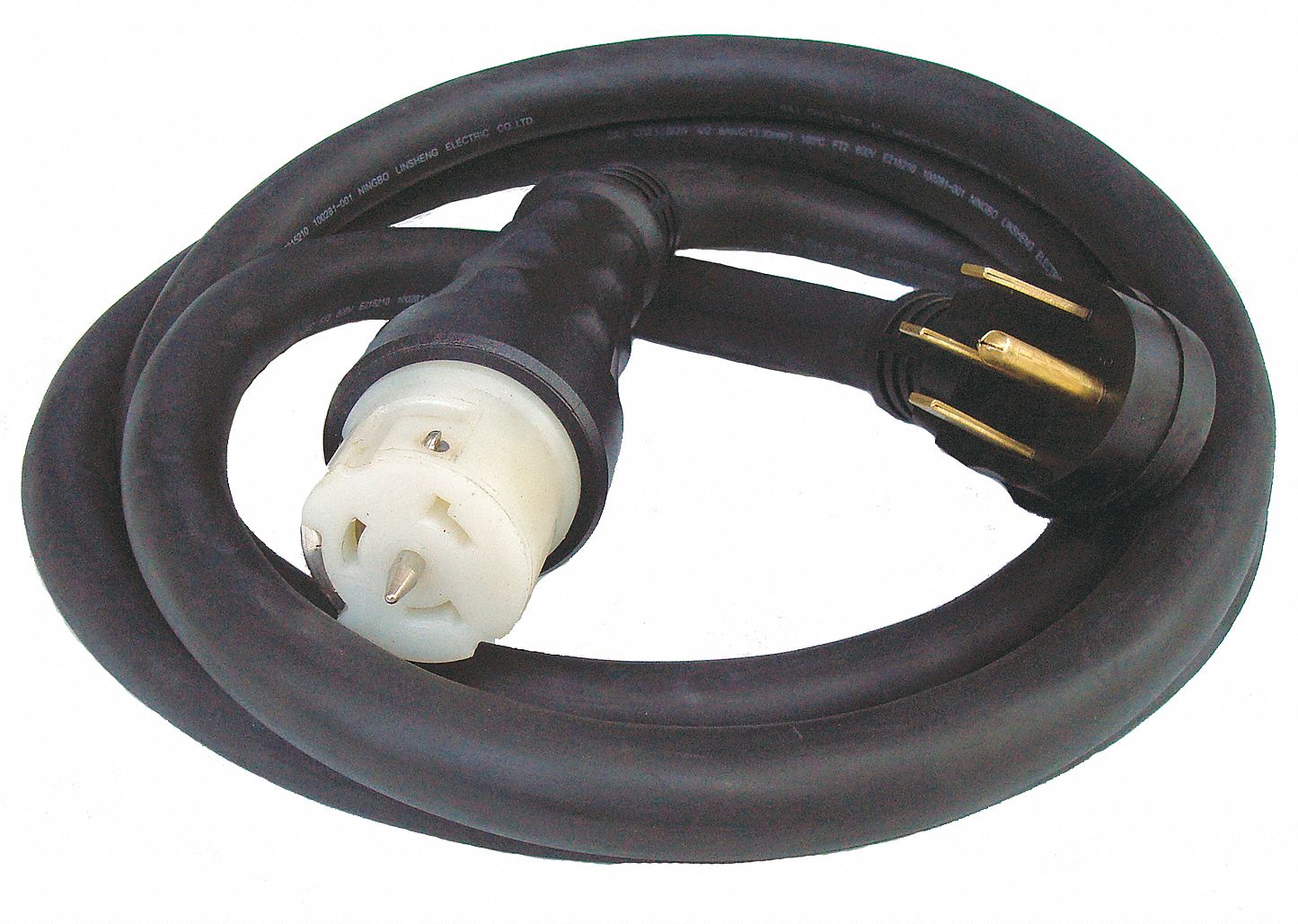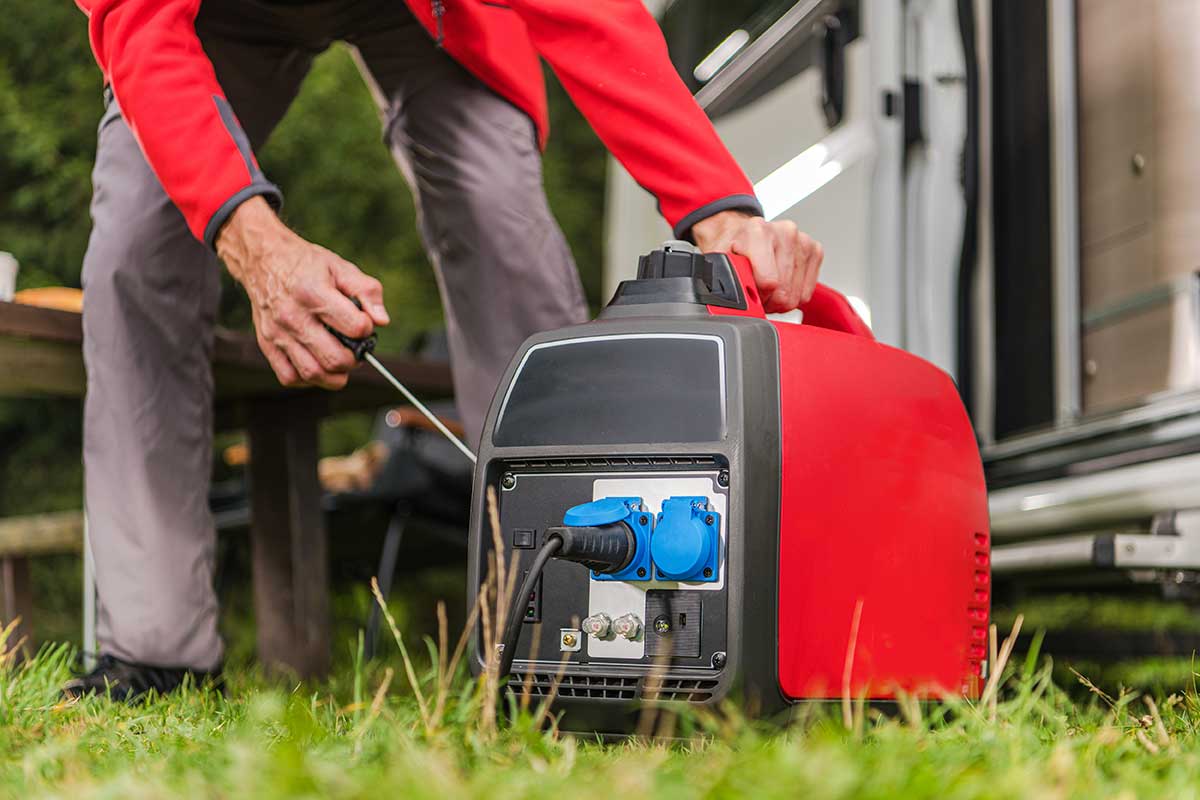

EV Charging and More: 10 Uses for Portable Generators
By Grainger Editorial Staff 4/1/24


Portable generators are essential for businesses to keep operations running during emergency situations when power goes out. However, they offer a wide range of applications beyond providing emergency power backup. These generators, which can run on gasoline, diesel, natural gas, propane or rechargeable batteries, are increasingly used to power everything from electronic vehicles (EVs) to mobile businesses. Discover the many ways in which portable generators can be used.
1. Outdoor Festivals, Weddings and Special Events
Portable generators play an essential role in supplying power for festivals, weddings and special events. They handle everything from powering sound systems and lighting to catering facilities. Inverter generators are popular for outdoor events because they are designed to operate more quietly and fuel-efficiently, helping reduce noise and pollution in these settings. When choosing a generator for an outdoor event, be sure to calculate the power needs of all equipment, including the starting and running wattage, and follow all safety precautions and placement recommendations.
2. Powering Mobile Businesses
Mobile businesses such as food trucks, pop-up shops and hair salons often rely on generators. Portable and battery-powered inverter generators make it convenient for businesses to use tools, appliances, lighting and payment systems while on the go, especially in areas with limited access to power.
3. Charging Electric Vehicles
While portable generators are not the primary method for EV charging, they can be a backup power solution in emergencies. Inverter generators offer better fuel efficiency and high-quality power, making them ideal for powering sensitive electronics like those found in EVs. Compatibility and wattage vary, so it's important to check the generator features and EV charging requirements, including the need for special adapters.
4. Remote Work Sites and Construction
In work sites and construction zones, portable and inverter generators are often used to power tools, lighting, safety equipment and even temporary offices. Their adaptability in different weather conditions and environments ensures workers remain productive in areas without a consistent power supply.
5. Farming and Agriculture
Generators are widely used in farming and agriculture to power irrigation systems, electrical fencing, farm equipment and machinery in areas without access to electricity.
6. Supporting Medical Equipment
For individuals who rely on medical equipment, having a reliable and quick-starting portable generator can be a lifeline during power outages. Inverter generators can serve as backup power sources during emergencies to ensure that critical devices, like oxygen concentrators and home dialysis machines, continue running.
7. Mobile Health Services
Mobile healthcare services often depend on generators to ensure a continuous power supply for refrigerating vaccines and operating medical equipment. Portable generators also play a role in improving accessibility to healthcare by enabling the safe and reliable functioning of mobile healthcare units like blood donation buses and clinics.
8. Military and Defense Operations
Generators are used in various military settings to power communication and surveillance equipment, lighting, computer systems and medical facilities when access to the power grid is unavailable or unreliable. They can help keep critical equipment running in remote areas or conflict zones, improving the responsiveness of units by ensuring communication, visibility, medical support and other critical operations.
9. Film and Media Broadcasting
The film and media industry frequently relies on portable and inverter generators to deliver clean power for sensitive electronic equipment. Generators allow crews to film on-location shoots in remote areas by powering lighting systems, cameras, production equipment and other necessary devices.
10. Outdoor Activities
Portable generators are often used to power lighting, cooking appliances and electronic devices for outdoor activities like camping and tailgating. When selecting a generator, it's important to consider factors like transportability, convenience, noise and fuel efficiency levels, in addition to the desired power output.
Advancements in technology have helped expand the use of generators beyond emergencies into a variety of everyday settings. Thanks to improved fuel efficiency, reduced emissions, and integration with renewable energy sources, generators are becoming more versatile and environmentally friendly. However, it's important to always consult the owner's manual before using a generator in a new setting to ensure you are following the proper safety precautions.
Frequently Asked Questions
The main difference between inverter and conventional portable generators is how they generate and deliver power. Conventional generators directly produce alternating current (AC) power, while inverter generators use a different method. They create AC power, convert it to direct current (DC), and then invert it back to AC power. This process allows inverter generators to produce more stable power, making them a more fuel-efficient choice. They are also lighter, quieter and require less maintenance, providing easier handling and storage.
Portable generators can power many different appliances like refrigerators, freezers, lights, fans, heaters, air conditioners, power tools and electronic devices. However, the specific appliances that can be powered depend on a generator's wattage and capacity.
Portable generators can run for different amounts of time based on the type of fuel, the size of the fuel tank and the amount of power they provide. Gasoline and propane generators typically run for 8 to 14 hours, while diesel generators can operate for 12 to 48 hours. In general, the runtime of generators ranges from several hours to days based on factors like fuel capacity, workload and overall efficiency. Runtimes vary, so refer to the owner's manual for specific guidelines.

PPE in the Workplace
Lanyards vs. SRLs: Understanding Fall Protection Systems
Shock-absorbing lanyards and self-retracting lifelines both protect against falls, but they work differently. Learn how movement, clearance and system design affect each one.
![]() Our Latest KnowHow
Our Latest KnowHow

Are You Using the Best Cleaning Cloth for the Task?
It's easy to get into the habit of using the same basic cloths for most cleaning tasks. Consider these options for better, more efficient ways to trap dirt and dust throughout your facility.
The information contained in this article is intended for general information purposes only and is based on information available as of the initial date of publication. No representation is made that the information or references are complete or remain current. This article is not a substitute for review of current applicable government regulations, industry standards, or other standards specific to your business and/or activities and should not be construed as legal advice or opinion. Readers with specific questions should refer to the applicable standards or consult with an attorney.




